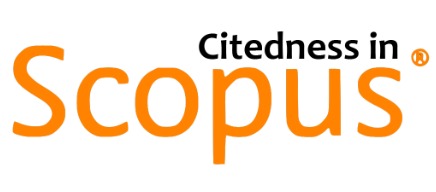Bos Funds Allocation For Pilot Schools: Study On SDIT Bina Insan Qur'ani Cibatu-Garut
Keywords:
Budgeting Allocation, BOS Funds, Pilot SchoolsAbstract
Educational actors are still confused in setting funding priorities for the development of pilot schools. This paper is intended to understand the priority allocation of pilot school funding originating from BOS funds. This research uses a qualitative method with an action research approach. The theory used is the concept of allocation and budgeting from Nanang Fattah. The problem that arises is what kind of financing sector gets more budgeting in pilot schools. From the findings in the field, it was found that the largest portion of the allocation of BOS funds for three years was in the funding of salaries for teachers and education staff. The budget design of SDIT Bina Insan Qur'ani uses a model of budgeting by line item. However, every year there is a change in the budgeting format. This was done to simplify school spending.
References
Ghani, Abd Rahman A. (2014). Metodologi Penelitian Tindakan Sekolah, Jakarta: Rajagrafindo Persada.
Fattah, Nanang. (2017). Manajemen Pembiayaan Pendidikan Berbasis Aktivitas Pembelajaran, Bandung: Rosdakarya.
Effendi, M. R. (2020). Mitigasi Intoleransi dan Radikalisme Beragama di Pondok Pesantren Melalui Pendekatan Pembelajaran Inklusif. Paedagogie, I(I), 55–74. https://doi.org/doi.org/10.20211/pdg.01.1.05
Effendi, M. R. (2020). Mitigasi Intoleransi dan Radikalisme Beragama di Pondok Pesantren Melalui Pendekatan Pembelajaran Inklusif. Paedagogie| Jurnal Pendidikan dan Studi Islam, 1(1), 56-75.
Rusmana, Maman dan Hamdani, Agus. (2015). Penentuan Anggaran BOS Berdasarkan Jumlah Siswa terhadap Pelayanan Pembelajaran yang Berkeadilan di Sekolah Dasar. Jurnal Ilmu Pendidikan 21, 160-166.
RKAS 2016-2018 SDIT Bina Insan Qur’ani Cibatu Garut.
Published
How to Cite
Issue
Section
Copyright and Licensing Policy
Paedagogie: Jurnal Pendidikan dan Studi Islam allows authors to retain the copyright of their work and to retain publishing rights. By submitting and publishing with this journal, authors agree to the following terms:
-
Copyright remains with the author(s), and they grant the journal the right of first publication. The work is published under a Creative Commons Attribution-ShareAlike 4.0 International License (CC BY-SA 4.0), which permits use, distribution, and reproduction in any medium, provided the original work is properly cited and any derivative works are distributed under the same license.
-
Authors are allowed to enter into additional non-exclusive distribution agreements (e.g., posting to institutional repositories, publishing in books), with acknowledgment of the work's initial publication in this journal.
-
Authors are encouraged to disseminate their work online (e.g., in repositories or on personal websites) before and during the submission process to increase visibility and impact.
Paedagogie: Jurnal Pendidikan dan Studi Islam supports open access and affirms that libre access with a CC BY-SA license or its equivalent is the optimal approach for scholarly communication. We prioritize free and open dissemination while encouraging the reuse and adaptation of published content under fair and equitable terms.
You are free to:
- Share — copy and redistribute the material in any medium or format
- Adapt — remix, transform, and build upon the material for any purpose, even commercially.
- The licensor cannot revoke these freedoms as long as you follow the license terms.















